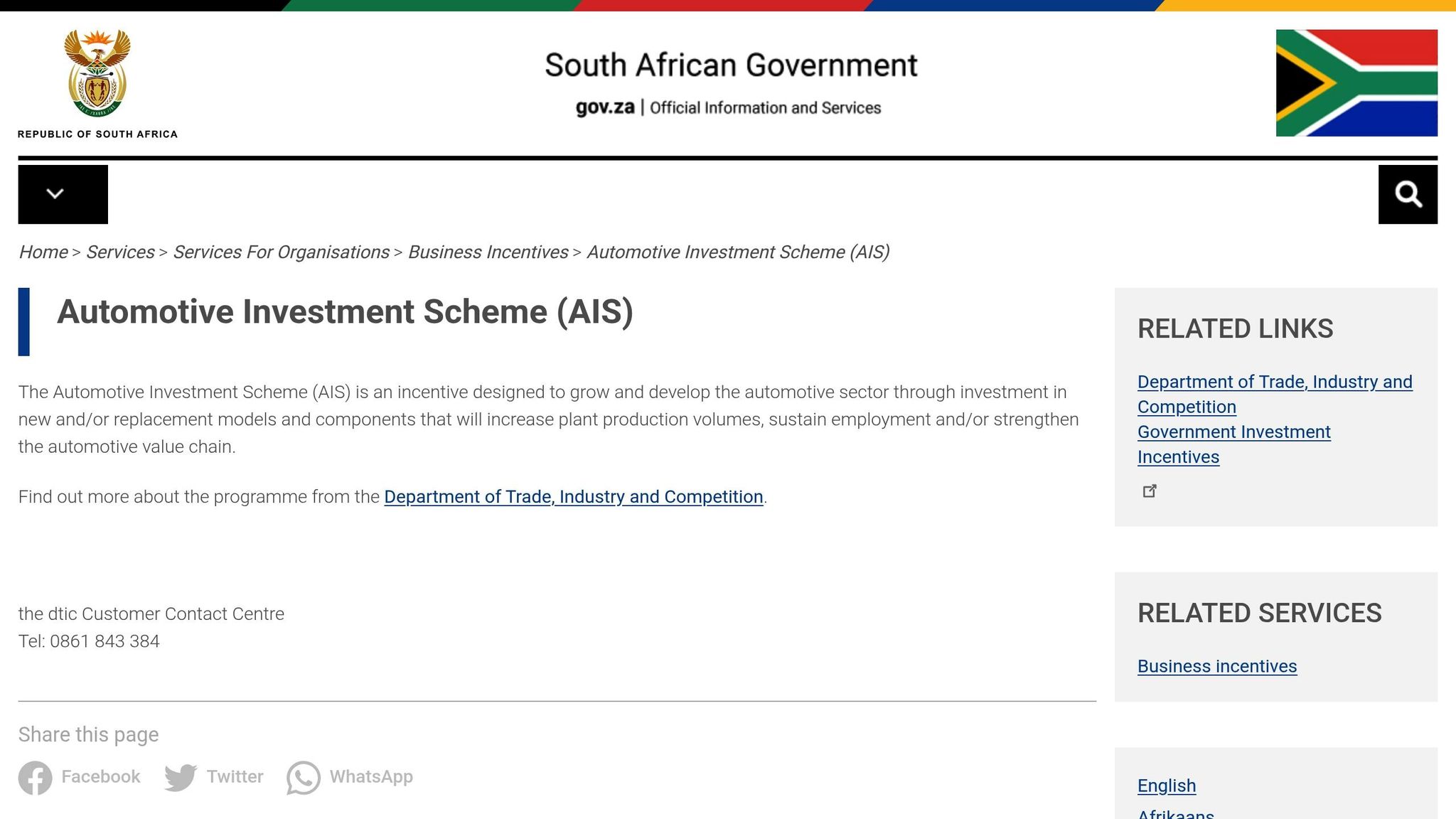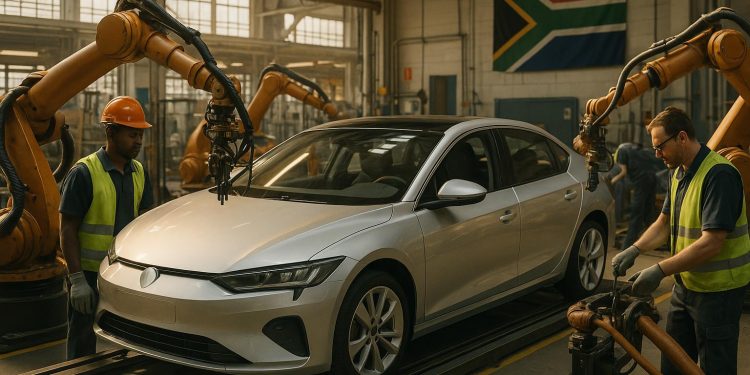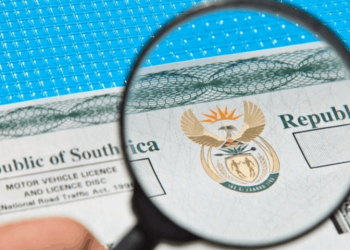South Africa is taking steps to boost local electric vehicle (EV) production by proposing tax incentives. These incentives aim to lower production costs, attract investments, and encourage the use of locally sourced components. Although the exact details are still being finalized, here’s what we know so far:
- Proposed Incentives: Tax deductions for investments in EV manufacturing facilities and equipment.
- Eligibility: Likely tied to meeting local content benchmarks and compliance with new standards.
- Challenges: High import duties on EV components, limited charging infrastructure, and workforce retraining needs.
Manufacturers should stay updated on government announcements to take advantage of these opportunities while navigating challenges like supply chain gaps and policy alignment.
South African government to ramp up EV production
Main Tax Incentives for EV Manufacturing
South Africa is still in the process of shaping its tax incentives for electric vehicle (EV) manufacturing. While the government has expressed its intentions through proposals – hinting at increased tax deductions for investments and certain capped limits with protective measures – specifics remain unclear. No official guidelines, criteria, or timelines have been released yet. This evolving framework will play a crucial role in defining eligibility for local EV manufacturers.
Eligibility Requirements for EV Manufacturers
The proposed tax incentives for EV manufacturers come with eligibility criteria that are still being developed. These guidelines will clarify the standards manufacturers must meet, focusing on areas like qualifying investments, local content benchmarks, and compliance measures. This evolving framework aims to support and shape the growth of local EV production.
Qualifying Investments and Assets
Early indications suggest that investments aimed at boosting EV production capabilities could qualify for incentives. This might include expenditures on manufacturing facilities or production equipment. However, the specifics of what will count as qualifying assets are yet to be finalized, leaving room for further clarification in upcoming guidelines.
Local Content and Usage Requirements
To encourage domestic production, the incentives may include requirements for using locally sourced components or meeting certain levels of local value addition. While the exact percentages or commitments haven’t been outlined, these measures align with government efforts to strengthen local manufacturing. More details on these requirements are expected in the forthcoming updates.
Exclusions and Compliance Rules
In addition to investment and local content conditions, the guidelines will establish compliance measures to ensure the incentives are used appropriately. For instance, restrictions may apply to operations that fail to make meaningful contributions to local manufacturing. These rules will aim to prevent misuse and ensure the program achieves its intended goals.
As these eligibility criteria continue to take shape, manufacturers should stay informed by monitoring official announcements and consulting with advisors. Understanding these evolving guidelines will be crucial for leveraging government support and contributing to the growth of the local EV industry.
sbb-itb-09752ea
Other Government Support for Automotive Manufacturers
South Africa offers various programs aimed at helping automotive manufacturers modernize their operations and stay competitive in the global market.
Automotive Investment Scheme (AIS)

The Automotive Investment Scheme (AIS) provides financial support to companies investing in manufacturing infrastructure, particularly for upgrading electric vehicle (EV) production capabilities. To qualify, applicants need to present detailed investment plans. This initiative works alongside tax incentives to address broader industrial challenges.
Local Content and Battery Component Incentives
Currently, there are no specific incentives for local EV battery production or increasing local content in manufacturing. However, manufacturers should keep an eye on official announcements for potential policy updates in this area.
Challenges and Considerations for EV Manufacturers
South Africa’s tax incentives offer a promising opportunity for electric vehicle (EV) manufacturers, but the journey to local production is far from straightforward. Several hurdles could impact the success of these ventures, and understanding them is essential for crafting effective strategies and preparing for potential setbacks.
High Import Duties and Market Dynamics
South Africa’s trade policies create a tricky pricing situation for EVs. Import duties on EVs are often higher than those on traditional combustion engine vehicles, making imported EVs more expensive for consumers. While this might seem like an advantage for local production, it also raises the cost of imported components. Critical parts like battery systems and electronic control units, which aren’t yet produced locally, come with hefty price tags.
The domestic EV market is still in its infancy, which presents a classic "chicken-and-egg" dilemma for manufacturers. Large-scale production requires strong market demand, but consumers are hesitant to adopt EVs without affordable, locally made options. This creates a challenging loop that manufacturers must navigate.
Infrastructure and Supply Chain Gaps
Producing EVs isn’t just about assembling vehicles; it demands specialized infrastructure that differs significantly from what’s used for traditional cars. For instance, battery production requires controlled environments, clean rooms, and advanced quality systems – features that many existing facilities in South Africa lack.
Another issue is the uneven development of charging infrastructure. Cities like Johannesburg and Cape Town are making strides in expanding their charging networks, but rural areas remain largely underserved. This disparity can affect consumer confidence, making it harder to grow demand for locally manufactured EVs.
The supply chain also poses challenges. EV production requires expertise in high-voltage systems, battery management, and software integration – skills that are currently in short supply domestically. Manufacturers often have to invest in training programs or bring in talent from overseas to bridge these gaps.
Additionally, there’s the question of energy sustainability. While South Africa has abundant solar and wind resources, the country’s grid still relies heavily on coal. Manufacturers aiming for greener production may need to invest in private renewable energy systems, adding to their upfront costs.
Policy Alignment and Workforce Development
Policy consistency and workforce readiness are other critical concerns. While the Department of Trade, Industry and Competition supports EV manufacturing through tax incentives, other regulatory frameworks – such as those governing battery disposal, recycling, and safety standards – are still evolving. This lack of alignment can create uncertainty for manufacturers planning long-term investments.
Shifting to EV production also requires retraining the workforce and attracting new talent, a tough task given the current labor landscape. Many workers will need to learn new skills to adapt to the demands of EV manufacturing.
Intellectual property (IP) and technology transfer agreements add another layer of complexity. Many EV technologies are controlled by international companies, which means manufacturers must strike a balance between accessing cutting-edge technology and meeting local content requirements. On top of that, navigating South African National Standards and securing certifications for new vehicle models can be a time-intensive process. However, as the sector matures, there may be opportunities to streamline these procedures for greater efficiency.
Conclusion
South Africa’s push to support electric vehicle (EV) manufacturing offers exciting opportunities for companies looking to advance cleaner transportation solutions. This move underscores the government’s commitment to attracting local investment, even as some details of the framework are still being refined.
For manufacturers, staying informed about the latest guidelines and working closely with tax professionals is essential. By aligning their strategies with the evolving regulatory landscape, businesses can position themselves to make the most of the outlined tax incentives.
As South Africa moves forward in its journey toward greener mobility, careful planning and well-thought-out decisions will be key to tapping into these opportunities effectively.
FAQs
What are the eligibility requirements for manufacturers to qualify for tax incentives for EV production in South Africa?
Currently, the exact requirements for manufacturers to qualify for tax incentives tied to electric vehicle (EV) production in South Africa haven’t been disclosed. These incentives are anticipated to aim at boosting local manufacturing and advancements within the EV industry.
To stay updated on developments in South Africa’s EV sector, including potential advantages for manufacturers, turn to reliable sources like ImotoNews South Africa. They provide comprehensive coverage of automotive trends and regional industry updates.
How do high import duties on EV components impact the competitiveness of locally manufactured electric vehicles in South Africa?
High import taxes on electric vehicle (EV) components can have a big impact on the price of locally made EVs. These taxes drive up production costs, often making locally assembled EVs pricier than imported models or those produced in countries with lower import taxes.
To tackle this challenge, South Africa provides tax breaks and subsidies to support local EV production. These measures help manufacturers lower their costs, easing the financial strain caused by high import duties. By leveraging these benefits, local producers can offer EVs at more competitive prices, both within South Africa and in global markets.
What is being done to improve charging infrastructure in South Africa to support the growth of electric vehicles?
South Africa is making strides in building up its charging infrastructure to meet the demands of its expanding electric vehicle (EV) market. This includes setting up additional public charging stations in cities, along highways, and on major transit routes, making EV ownership easier and more accessible for drivers.
Both private companies and government programs are joining forces to offer incentives that encourage businesses to invest in EV charging networks. These efforts aim to tackle range anxiety and promote the broader use of electric vehicles nationwide.
Related Blog Posts
- Export Tax Incentives: Boosting SA Auto Exports
- South Africa’s Vehicle Import Tariffs Explained
- EV Import Duties in South Africa Explained
- South Africa’s EV Policies: Renewable Charging Impact





